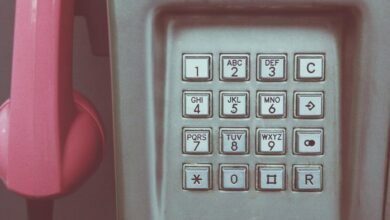Trusted Number Investigation 3511998184 3512995638 3509628198 3314059537 3511928513 3518355148

The investigation of trusted numbers such as 3511998184, 3512995638, and others is essential for assessing their legitimacy. These numbers may be linked to various organizations or, conversely, to fraudulent schemes. Understanding the patterns and origins of these digits can aid individuals in identifying potential scams. However, the challenge lies in verifying their authenticity. What methods can one employ to discern between genuine calls and deceptive solicitations?
Overview of the Numbers
The investigation into trusted numbers reveals a complex interplay of data integrity and verification processes.
Understanding number origins is crucial, as they determine the legitimacy of a caller’s reputation. By analyzing these numbers, one can discern patterns that indicate reliability or potential risks.
This analysis emphasizes the importance of scrutinizing caller information, promoting informed decisions that empower individuals in their communications.
Common Scams Associated With These Digits
While many individuals rely on trusted numbers for communication, a significant number of scams exploit these seemingly legitimate digits.
Common scam tactics include spoofing caller identity to impersonate reputable organizations, thereby deceiving victims into revealing personal information.
Additionally, unsolicited calls often pressure individuals into making hasty decisions, further emphasizing the need for vigilance against such fraudulent activities associated with these specific numbers.
How to Verify Phone Numbers
How can individuals effectively verify phone numbers to ensure their legitimacy?
Phone number verification can be achieved through various means, including utilizing caller ID services that provide information about the caller.
These services can help identify unknown numbers and establish whether they are associated with legitimate entities.
Engaging in such verification practices empowers individuals to make informed decisions about potential communications.
Steps to Protect Yourself From Spam Calls
Many individuals face the persistent challenge of spam calls, which can disrupt daily life and compromise privacy.
To mitigate this, enabling call blocking features on devices is essential. Additionally, adjusting privacy settings to limit unknown callers can further enhance protection.
Regularly reviewing these settings empowers users to maintain control over their communications, fostering a sense of freedom from unwanted intrusions.
Conclusion
In conclusion, investigating trusted numbers, such as those listed, is essential for safeguarding against scams. For instance, a case study involving a victim who received repeated calls from a number resembling 3512995638 highlights the importance of verification; this individual lost significant money after engaging with a fraudulent caller posing as a legitimate bank. By employing diligent verification techniques, individuals can enhance their security and reduce the risk of falling prey to scams that exploit trust in seemingly credible numbers.




